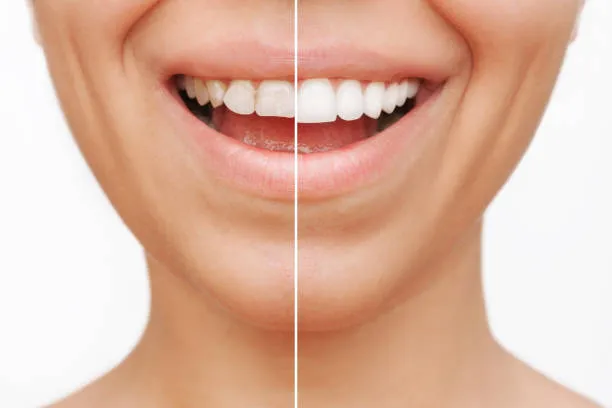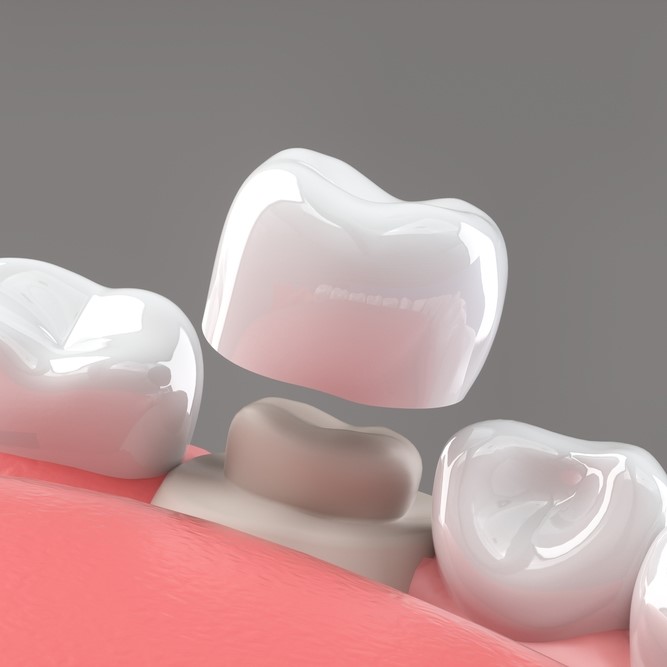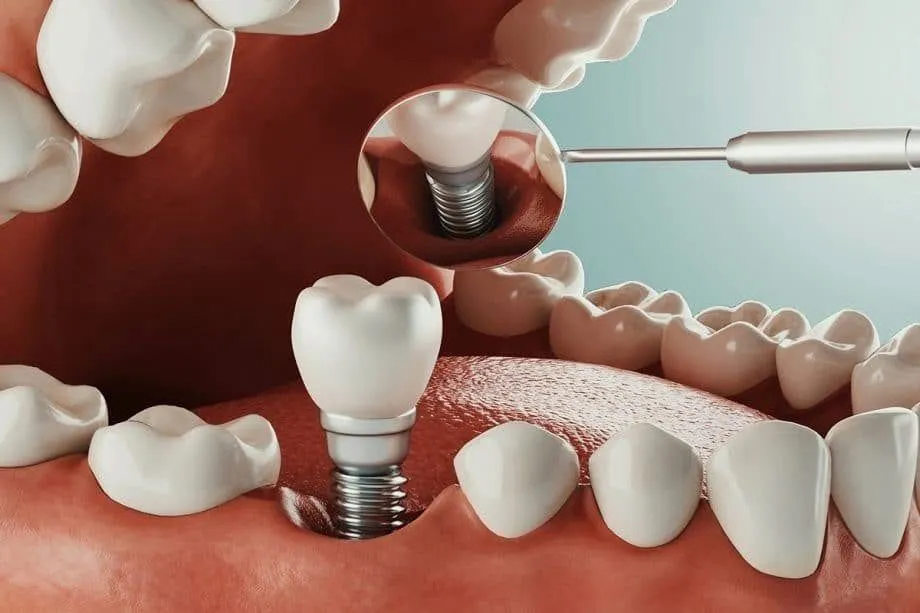From Gaps to Greatness: The Journey to a Perfect Smile with
Dental Implants in Riyadh
Say Goodbye to Missing Teeth!
Read in Arabic
Explore the strength of dental implants!
Are you curious about the enduring success of your dental implants? Dental implants in Riyadh, Jeddah, Saudi Arabia can be a game changer, but like any other surgery, they also come with some complications. Without careful attention, concerns arise, leaving you with distress or even implant failure. So, you are doing everything you can to guard your new smile. Let’s find out!
Procedure Time
30 minutes to an hour
Downtime
Minimal
Cost
1000 SAR to 8000 SAR.
Results
Effective & long-term
Dental implants in Riyadh
Dental implants are the most typical surgical tooth alternate choice. They provide help for artificial teeth such as crowns, bridges, and dentures. Dental implant positioning might need some methods and several months of healing. But once an implant recovers, you can apply it just like a natural tooth. With some proper care, your implants can last a lifetime.
Main Parts of Implants
A dental implant has three main portions:
- Threaded post: You may be thinking it would be an artificial tooth root. A deliver positions it in your jawbone during a dental surgery process.
- Abutment: This tiny connector post. It screws into the threaded post and elongates gently beyond your gums. It serves as the foundation for your new artificial tooth.
- Restoration: A dental restoration is any prothetic that restores and recontours the teeth. The most common dental implants repairing are crowns, bridges, and dentures.
Types of Dental Implants
There are two main types:
Endosteal Implants
This is the most common type. It typically looks like a screw, that is implanted inside your jawbone during the surgery. Every implant can hold one or more prosthetic teeth, This is a good choice for individuals who already have bridges or removable dentures.
Subperiosteal Implants
This is positioned on the tops of the jaw, with posts from a metal framework sticking out through your gums to hold your prosthetic teeth. This is the best choice for individuals who can not wear removable dentures or do not have enough bone in their jaw to hold an endosteal implant.
Zygomatic Implants
Implants that are subperiosteal are positioned above the jawbone but below the gingival tissue. When a patient does not have a strong enough jawbone to sustain an endosteal implant, they are frequently employed.
Strong, Natural, & Beautiful - Book Your Dental Implant Procedure Today at Enfield Royal Clinic!
Benefits
The best dental implants have multiple benefits over dentures, including:
- More acceptable chewing capability.
- Improved smile. Enriched speech and pronunciation.
- Jawbone protection.
- Longevity is achieved with appropriate hygiene and frequent oral visits.
- Stability for unstable dentures.
Another benefit is that dental implants do not need enamel reduction like bridges do. To reposition the misplaced tooth with an oral bridge, your dentist must change at least one tooth on either side of the gap. This can dilute your natural enamel structure over a period.
Who’s a Nominee?
You are a perfect nominee if you:
- Have adequate general and oral health.
- Completely developed jawbone.
- Sufficient bone in your jawbone to hold the implants.
- Healthy gum tissue with no periodontal disease.
- Quit smoke.
- Are willing to engage for multiple months in the procedure.
Pre-care Instructions
Here are some pre-care guidelines for the process:
- Get a complete dental examination involving X-rays and 3D images.
- Your dentist might prescribe you antibiotics to prevent infection.
- Stop smoking at least once a week before surgery.
- Do not eat or drink for 6 to 8 hours before the process.
How is the Procedure Done?
Some steps of the procedure are:
Anesthesia: | Local anesthesia, sedation, or general anesthesia is provided for comfort. |
Implant positioning: | A titanium implant is an invasive inserted into the jawbone where the missing tooth was. The gums are then closed with stitches. |
Osseointegration: | Over a period, the implants fuse with the bone. This is critical for stability. It will require almost 3 to 6 months. |
Abutment positioning: | After recovery, a small linker is connected to the implants. |
Crown placement: | A customized oral crown is positioned on the abutment, completing the tooth repair. |
Post-care Instructions
Here are some post-care guidelines for the process:
- Expect mild pain, swelling, and bruising, but you can use medications.
- Stick to soft food for at least some days, and also avoid hot, spicy foods.
- Rinse gently with a saltwater solution 2 to 3 times a day.
- Maintain all check-up schedules to minister recovery.
Results

In the beginning, it takes about one week, but it takes anywhere from 3 to 9 months for your jawbone to fuse around the implant. This method stabilizes your implants so you can apply it as a natural tooth. It may last longer than alternative methods. With brushing and flossing, and regular oral visits, implants can last a lifetime.
Dental Implant Costs In Riyadh
Dental Implants
Starting FromDental Implants
StandardThe Costs Of Dental implants in Riyadh, Jeddah, Saudi Arabia may vary from 1000 SAR to 8000 SAR, but the actual cost may vary according to factors such as the type of implants, number of implants required, dentist’s expertise, and complexity of the case. It is advised to meet your requirements according to your desire at affordable prices.
Restore Your Smile, Rebuild Your Confidence| Book an Appointment!
At Enfiled Royal Clinic, our expert dentists are offering you the best and effective impression by repairing your smile. Book your appointment for Dental implants in Riyadh, Jeddah, Saudi Arabia to get complete guidance on your way to a stronger smile!
FAQs.
With proper care, they can last 10 to 30 years or more.
Most individuals report minimal distress during and after the process.
Implants are more stable, feel more natural, and preserve bone better.
These dental implants may cost you between 1000 SAR to 8000 SAR.
Some plans completely cover them; check it with your dentist.
Yes, they can help with crowns, bridges, or complete dentures.
Relevant Treatments.

Root Canal in Riyadh
Are you tired of suffering from persistent tooth pain that just won’t go away? It can be frustrating and downright miserable, especially when it interferes with your daily life. We understand how frustrating and uncomfortable this can be, which is why we offer the most advanced and accurate root canal treatment

Dental Crowns in Riyadh
An injured or rotting tooth may be saved by a dental crown, which will restore both its appearance and function. A dental crown must be positioned precisely and expertly, though. The establishment of a strong bond between the crown and the tooth is an essential phase in this procedure. Here’s when the introduction’s hook comes in. A dental expert can strengthen
Relevant Posts.

Dental Implants Cost in Saudi Arabia
Are you sick of hiding your smile because of missing teeth and dreaming of a remedy that would boost your confidence while remaining within your price range? Look nowhere else Dental Implants in Riyadh is the solution. Get ready to find the way to a brilliant smile that will make you glow with happiness! They are cutting-edge dental restorations that have completely changed the field of oral healthcare.




